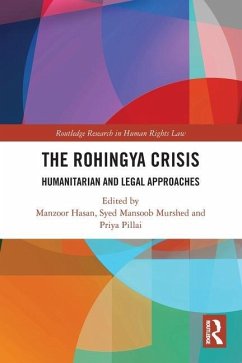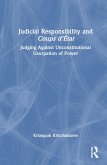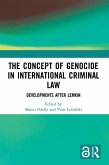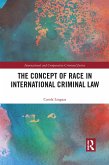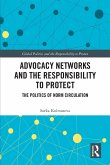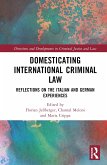This edited volume addresses the broader aspects of the political and social landscape, human rights violations, accountability and advocacy efforts, and humanitarian challenges faced by the Rohingya from Myanmar.
The work brings together different voices of legal, policy, and international affairs experts to construct a framework which addresses the complex and nuanced issues comprising the Rohingya crisis. Although there is recognition that international legal mechanisms are moving forward more quickly than anticipated, these processes do not constitute standalone sustainable solutions. Myanmar's myriad political, social cohesion, development and security challenges are likely to persist even as justice and accountability processes move forward. Thus, this book project is premised on the consensus that the international community should complement international justice mechanisms by looking toward creative and multi-faceted approaches in addition to justice and accountability.
This timely contribution will be of interest to academics, researchers, development practitioners, and human rights organizations.
The work brings together different voices of legal, policy, and international affairs experts to construct a framework which addresses the complex and nuanced issues comprising the Rohingya crisis. Although there is recognition that international legal mechanisms are moving forward more quickly than anticipated, these processes do not constitute standalone sustainable solutions. Myanmar's myriad political, social cohesion, development and security challenges are likely to persist even as justice and accountability processes move forward. Thus, this book project is premised on the consensus that the international community should complement international justice mechanisms by looking toward creative and multi-faceted approaches in addition to justice and accountability.
This timely contribution will be of interest to academics, researchers, development practitioners, and human rights organizations.

